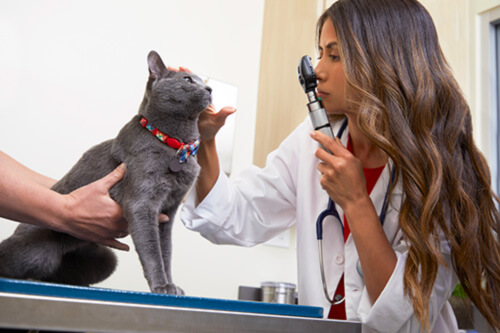Finding the Perfect Veterinary Position: Looking Beyond Veterinarian Salary
3 min read

Americans love their pets. The American Veterinary Medical Association states that Nearly 70% of households have at least one pet. The global pandemic further boosted our affinity for our furry family members. According to a 2021 report by the ASPCA, new data shows that close to one in five households added a dog or a cat to their family during the COVID-19 pandemic. With statistics like this, it’s not surprising to find that veterinarian positions across the country are both highly in demand and highly competitive.
As you search for new veterinary roles, salary is just one piece of the equation and should only be part of your decision to join a new practice. Consider the Total Rewards package – compensation and benefits. Make it a priority to find a veterinary practice that supports your growth and continued education, emphasizes work/life balance, and provides you with benefits that make it easy for you to care for yourself and provide security to your family.
What to Consider When Searching for Veterinary Roles
When looking for veterinarian jobs, salary is an important factor – but it’s not the only factor. Earning the highest veterinarian salary will have little significance if you’re unhappy in your veterinary career and life outside of work.
Here are some important questions to ask during your search for that ideal new practice:
Does the team and leadership openly discuss the importance of work-life balance and managing career stress, compassion fatigue, and burnout?
Will you have the freedom to practice autonomous medicine, without strict protocols that allow you to set the diagnostic and treatment plan of your choice for your patients?
Does the hospital provide state-of-the-art tools, tests, resources, and technology to help you offer a high standard of care?
What are the health and wellness benefits provided?
How is your career and education growth supported with a continuing education budget and leadership development?
How does the practice talk about work-life balance, managing stress, and veterinary career burnout?
There is a mental health crisis among veterinary professionals. Studies have shown veterinarians are approximately 1.5 times more likely to experience depression than the average US adult, even among other healthcare professionals. Long hours, poor pay and benefits, and high-stress work environments all contribute to higher rates of compassion fatigue, burnout, depression, and suicide among veterinarians. As innate caretakers, veterinarians often prioritize their patients and family over their own wellness.
Be direct: how is staffing handled to ensure a cohesive and strong team and what resources and benefits the practice has in place to support your health and wellness.
Do you have the freedom to practice autonomous medicine?
Veterinarians who are empowered to practice autonomous medicine have the freedom to determine the right diagnostics and treatments based on the patient’s individual needs. If providing the very best standard of care is important to you, make sure you ask about autonomous medicine as you explore new veterinary career opportunities.
Does the hospital provide best-in-class facilities, tools, and products?
What’s on your practice wish list? Imagine having an on-site lab and X-ray and surgical suites. The latest cloud-based veterinary management software makes it easy and efficient to complete patient records. The ability to offer whole health care to your patients, with Vetco’s Total Rewards pet care products, grooming, and positive dog training right at their fingertips.
You can have it all in one place!
What benefits are provided?
Think beyond the bottom line of base salary. A competitive veterinary benefits package should include paid medical, dental and vision insurance; 401(k) retirement plans; paid parental leave; equity stock options; generous paid time off, long-term incentives, continued education stipends and product and hospital discounts. More comprehensive plans include mental health, fertility, and adoption benefits. (Petco Total Rewards includes all of these.)
Pay close attention to sign-on bonuses and read the fine print. These often come with strings attached, such as noncompete contracts that can limit your ability to relocate, change jobs or grow your career. For this reason, Petco never requires applicants we hire to sign a noncompete contract.
Does the practice pay for veterinary continuing education courses?
Veterinary medicine is always changing, and practitioners never stop learning. Staying on top of the latest advancements and research in the field is key to providing the highest standard of pet care while fueling your curiosity, professional growth, and skills. Ask about the continued education reimbursements offered to you.